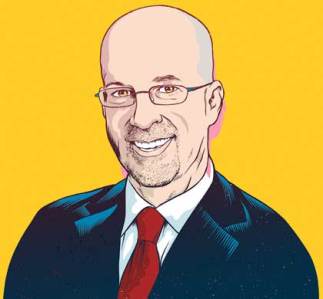Newmark Grubb Knight Frank’s Jeffrey Roseman on New York and Las Vegas
By Daniel Geiger May 23, 2012 12:00 pm
reprintsJeffrey Roseman is an executive vice president and principal of Newmark Grubb Knight Frank’s retail business and is a top retail leasing executive in the city. Mr. Roseman, who has handled a number of prominent leases over his long career, spoke to The Commercial Observer about how ICSC remains important for top-tier dealmakers, how retail isn’t going away despite the growth of e-commerce and what recent departures from Newmark means both to him and as part an industrywide shake-up in brokerage. As usual, Mr. Roseman will be heading into ICSC with several interesting space availabilities he is marketing.

The Commercial Observer: First things first—ICSC starts Saturday, what do you have planned?
Jeffrey Roseman: Oh, boy. I must have 50-plus meetings set up this year. It really feels like it’s going to be one of the busiest conferences in a while, it just does. Everyone I speak to is going. A few years ago, when the market was having some problems, I think a lot of the chains sent only the top-level decision-makers, because they didn’t need to send the local leasing folks. This year it seems like everyone is back to going again. And for some reason, New York City is the apple of everyone’s eye. It really is. So everyone is focused on New York and that’s why we have so many meetings set up. Our party, Newmark’s party, is Monday night. We have it every year, we own that night, and the RSVPs are through the roof. You’re going to have to sneak in.
We’ll have to sneak in? No press?
Don’t worry, I’ll help you.
Since ICSC is a national conference, do you expect to hear about national problems in the retail industry, like how the Internet is causing stores to shrink?
For every retailer that is shrinking, there are probably two that are forming and expanding. So while Circuit City is gone and Best Buy is having issues ,there are other electronics companies like HHG out of Indiana and they are gearing up or they seem to be. It’s not industry by industry, but for every retailer having problems others are flourishing, and that’s the nature of our business. You see it all the time. The retail graveyard is full of companies that have come and gone, that were dominant one day and then couldn’t keep up and got replaced.
But are stores physically shrinking? Are retailers just taking less square feet?
There are very specific industries, clearly in books and music and electronics. But I don’t see clothing. I just don’t. You may buy a few things online, that are spot-on that you know. You own a pair of shorts that you like and you know what they are and you know the size. But clothing is still a touch-and-feel type of thing, and shopping is still social. So for the most part I’m really not seeing it. You can’t buy a cup of coffee on the Internet. Look, I have been hearing this since the beginning of the Internet, I’m around that long (laughs). In Manhattan there are 50 million tourists. They’re not sitting in the hotel room clicking on the computer buying things. They’re walking into stores. We really are social beings and people just don’t want to sit at a computer all day.
Has the conference changed at all?
I think it always has been the most important conference. But it reaches a wider network of people now. There are more bankers and attorneys there now. Adjunct real estate folks, and you say, ‘What are they doing there?’ But the business is so global now. Companies are being bought and sold, going public, going private, raising cash, and there’s so many elements to success, so many disciplines—retail is as much a business play as a retail play, and the other activities that are part of it like banking and finance are there now. It’s not just storefronts anymore. It’s investment banking.



